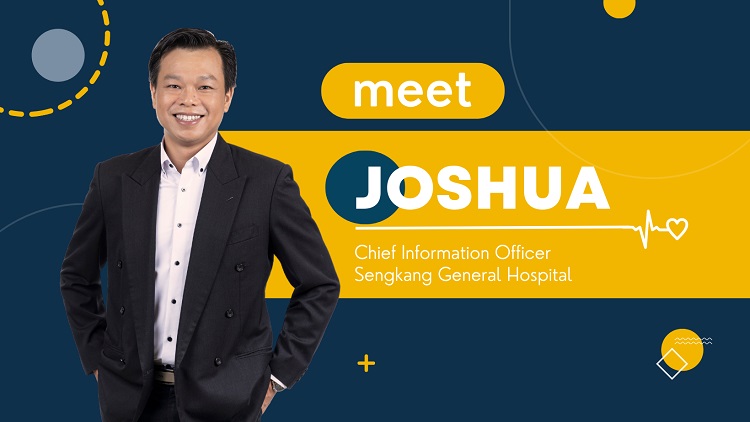
While Joshua's 5-year-old son thinks his job only entails typing on his laptop at night, Joshua does much more than that as Sengkang General Hospital's Chief Information Officer. If he had to explain it better, Joshua might compare his job to that of an air traffic controller. Just like air traffic controllers who use technology to ensure that planes can land and take off without any accidents, Joshua uses technology to help ensure everything at Sengkang General Hospital runs smoothly.
Role of IT in public healthcare
IT is both an enabler and accelerator to assist healthcare professionals in various aspects of patient care and administration. As an IT professional, Joshua aims to understand the business needs of various stakeholders and offer technological solutions to make things work seamlessly and efficiently. He also highlights the importance of being comprehensive and holistic in planning, yet accepting failures and correcting them early as part of iterative innovation, as systems may not always work as planned.
Behind the scenes at Sengkang General Hospital
As part of the team supporting the official opening of Sengkang General Hospital (SKH) in 2019, Joshua recalls the challenges faced in planning the IT infrastructure. He had to make tough decisions such as network, server room design and LAN room locations as these formed the critical foundation for the IT systems to work. It was critical that the right requirements were provided to the building consultants and architects. Unlike IT software, these rooms could not be changed once built.
Joshua and his team spent hours doing research and visiting other existing institutions and data centres to understand best practices and learn from their areas of improvements. Once the decisions were made, they followed through to ensure timely delivery.
To test run the hospital operations and ensure everything is running smoothly, Joshua stayed overnight in the inpatient ward before the opening day and made sure the IT systems were ready for the first patient. That night, he felt a sense of accomplishment as he saw how his hard work over the past 6 years had culminated in this moment.
Certainly, the hard work does not stop there. Joshua continues to sustain the IT systems in the hospital for optimised efficiency and patient care. He plans his busy schedule at least two months ahead, yet still makes time to walk around the SKH campus each week to engage his team and the hospital staff to understand their needs.
The future of healthcare
Joshua believes that the future of healthcare involves being aware of our own health and the potential consequences of our lifestyles. With wearable technology such as smart watches that can measure vital signs, users can be nudged to move around if they are inactive for too long. These wearables may even alert others when a fall or accident is detected.
In the future, this technology will only continue to become more intelligent and tailored to every unique user. It may move beyond wearables to sensors in the environment that deliver information regardless of location, be it relaxing at home or enjoying meals in hawker centres.
As an IT professional in the healthcare sector, Joshua aims to make a difference in patients' lives by improving patient care through technology and constant improvement of processes. Joshua points out that the joy of seeing healthcare staff using systems implemented by him and his team, the tangible impact on patients, and the opportunity to teach others are just some of the best parts about working in HealthTech.
If you have a passion to shape the future of HealthTech in Singapore, find out more at https://careers-public-healthtech-jobs.synapxe.sg/
